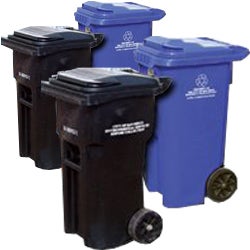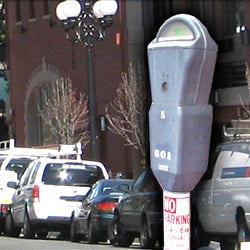HUBZone
The Historically Underutilized Business Zone (HUBZone) was created to stimulate economic development and employment growth in economically distressed communities by providing Federal contracting preferences to small businesses. Administered by the U.S. Small Business Administration (SBA), these preferences go to HUBZone certified small businesses that employ residents who live in a designated HUBZone as well as maintain its "principal office" in one of the specially designated areas.
- HUBZone Fact Sheet (PDF)
Benefits of the HUBZone Program
Generally, the program offers two levels of benefits. The first directly concerns Federal contracts, while the second entails specialized assistance.
-
A competitive HUBZone contract can be granted if the contracting officer has a reasonable belief that at least two qualified HUBZone small businesses will submit offers and the contract will be awarded at a fair market price.
- A sole source HUBZone contract can be awarded if the contracting officer determines that:
- The qualified HUBZone small business is responsible to perform the contract
- Two or more HUBZone small business will unlikely submit offers
- The contract can be awarded at a fair price. The government anticipated award price cannot exceed:
- $5 million for manufacturing requirements
- $3 million for all other requirements
-
A full and open competition contract can be awarded with a price evaluation preference. The offer of the HUBZone small business must not be 10% higher than the offer of a non-small business.
-
All subcontracting plans for large business Federal contractors must incorporate a HUBZone subcontracting goal.
- Eligible HUBZone businesses can qualify for higher SBA-ensured surety bonds on construction and service contract bids.
- Businesses located in Federal Empowerment Zones and Enterprise Communities (EZ/EC) can also benefit from employer tax credits, tax-free facility bonds, and investment tax deductions.
Eligibility for the HUBZone Program
To qualify, businesses (except tribally-owned concerns) must meet the following conditions:
- The entity must be deemed a small business by SBA standards.
- At least 51% of the business must be owned and controlled by U.S. citizens, or a Community Development Corporation, or an agricultural cooperative or an Indian tribe
- Its "principal office" must be located within a HUBZone. The "principle office" is the location where the greatest number of employees at any one location is performing work, with the exception of the construction and service industries
- At least 35% of the business' employees must reside in a designated HUBZone
You can Apply for the HUBZone Program online.
HubZone Certified Companies
For a more comprehensive list of certified businesses and/or businesses expressing interest in collaborating with the Federal government or working with other small businesses, visit the SBA's Dynamic Small Business Search.
Types of HUBZone Designations
A HUBZone is an area that is located in one or more of the following:
-
A Qualified Census Tract (QCT) - Developed in conjunction with the U.S. Department of Housing and Urban Development (HUD), the Internal Revenue Service (IRS) provisions defines Qualified Census tracts for the Low-Income Housing Tax Credit (LIHTC) program
-
A Qualified "Nonmetropolitan" County (QNMC) - Any county not located in a metropolitan area and meets certain criteria
-
A Qualified Indian Reservation (QIR) - Federally designated lands established and used by the Bureau of Indian Affairs
-
A Qualified Base Closure Area (QBA) - An area within the boundaries of a former military base that was closed through a privatization process under the Defense Base Closure and Realignment Act of 1990
Check the SBA's HUBZone Map to verify if your business is located in a HUBZone.
More Information
Other sources of information for HUBZones include:























